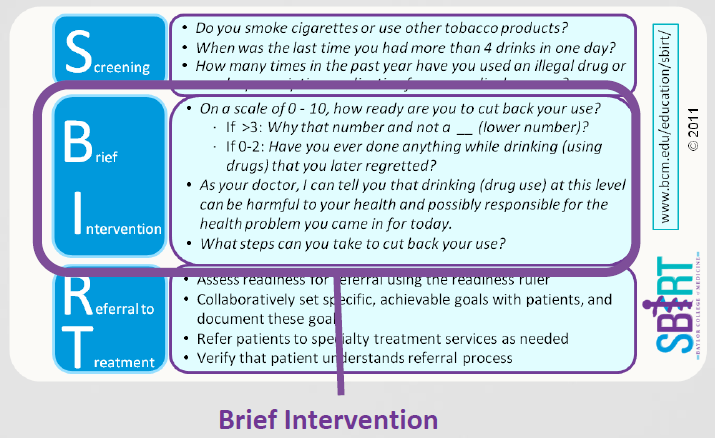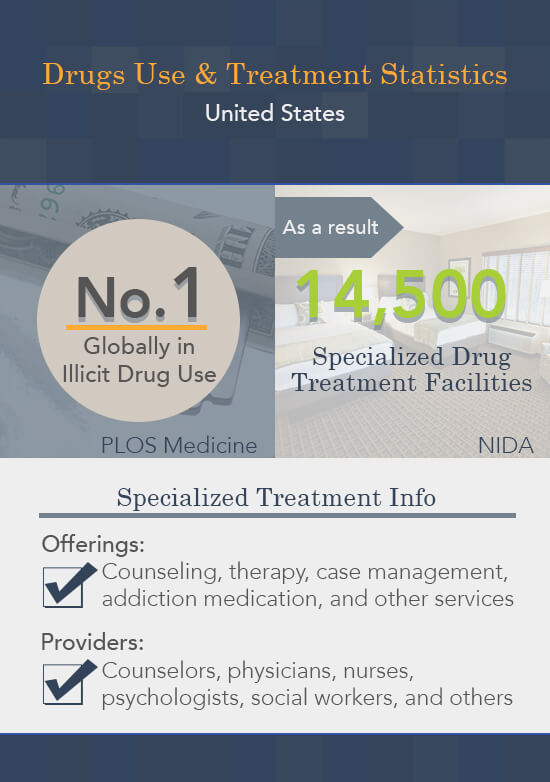This has sometimes led to the individual replacing one dependency for anotherwhat ASAM calls the "pathological pursuit of benefits" because the underlying cause was not dealt with. ASAM recommends that thorough addiction treatment ought to concentrate on all active and prospective compounds and behaviors that could be addictive (how to get help for drug addiction). ASAM was cautious to point out that the truth that dependency is a primary, persistent brain disease does not absolve addicts from taking obligation for their behaviors.
According to the National Institute on Substance Abuse (NIDA) drug addiction is categorized as a mental disease due to the fact that addiction changes the brain in basic methods, disturbing an individual's typical hierarchy of needs and desires, and substituting brand-new top priorities gotten in touch with procuring and utilizing drugs. The resulting compulsive behaviors that override the ability to control impulses regardless of the repercussions are comparable to trademarks of other mental health problems.
Drug reliance is associated with addiction. By comparison, the requirements for substance abuse depends upon the damaging repercussions of duplicated usage however does not include the compulsive usage, tolerance (i. e., requiring greater doses to accomplish the same effect), or withdrawal (i. e., symptoms that happen when use is stopped) that can be signs of addiction.
The high frequency of this comorbidity has actually been recorded in several national population studies given that the 1980s. Data reveal that individuals diagnosed with state of mind or stress and anxiety conditions have to do with two times as most likely to suffer likewise from a compound usage disorder (abuse or dependence) compared to respondents in basic. The very same holds true for those diagnosed with an antisocial syndrome, such as antisocial character or carry out condition.

The 30-Second Trick For What Is Drug Addiction Wikipedia
Although drug abuse and addiction can happen at any time during a person's life, drug usage generally starts in teenage years, a duration when the very first signs of mental disorder typically appear. It is for that reason not surprising that comorbid conditions can currently be seen amongst youth. Considerable changes in the brain happen throughout adolescence, which might boost vulnerability to substance abuse and the advancement of addiction and other mental illness.
Among the brain areas still growing throughout teenage years is the prefrontal cortex the part of the brain that allows us to examine scenarios, make noise decisions, and keep our feelings and desires under control. The truth that this important part of a teen's brain is still a work in progress puts them at increased risk for poor decision making (such as trying drugs or continuing abuse).
The more we discover, the better we comprehend the abilities and vulnerabilities of teens, and the significance of this stage for life-long mental health. The reality that so much modification is occurring underneath the surface might be something for parents to remember during the ups and downs of adolescence.
Estimates of the total general expenses of compound abuse in the United States, including productivity and health- and crime-related expenses go beyond $600 billion yearly. This includes approximately $193 billion for illegal drugs, $193 billion for tobacco, and $235 billion for alcohol. As staggering as these numbers are, they do not fully describe the breadth of destructive public health and safety implications of drug abuse and dependency, such as household disintegration, loss of employment, failure in school, domestic violence, and child abuse.
Not known Incorrect Statements About What Is The Link Between Heredity And Drug Addiction
It is typically incorrectly presumed that drug abusers lack moral principles or determination and that they can stop using drugs simply by choosing to change their habits. In truth, drug dependency is an intricate illness, and giving up takes more than excellent intentions or a strong will - which of the following best defines drug addiction?. In fact, because drugs alter the brain in manner ins which cultivate compulsive drug abuse, giving up is difficult, even for those who are ready to do so.

Treatment is offered to help individuals counter dependency's effective disruptive results. Similar to other persistent, relapsing illness, such as diabetes, asthma, or heart illness, drug addiction can be managed successfully. Drug addiction is an avoidable illness. Research has actually revealed that prevention programs including families, schools, communities, and the media are efficient in lowering substance abuse.
For centuries, addiction to alcohol and drugs has been viewed as an ethical failing. The individual addicted was considered as lacking in Go to this website self-control. However while that view is still Addiction Treatment Center held by some people, a brand-new design for understanding addiction has risen to the leading edge http://andersonnzej412.jigsy.com/entries/general/the-facts-about-how-much-does-drug-addiction-cost-america-uncovered in the scientific neighborhood. The truth is that dependency is an illness, and the research study is there to support it.
This development has substantial ramifications for those who are dealing with and fighting versus dependency. According to DrugAbuse. gov, "Dependency is a persistent, frequently relapsing brain illness that triggers compulsive drug seeking and use, despite hazardous consequences to the addicted individual and to those around him or her." The key here is that the addicted individual will continue using even when they see the damage their dependency is triggering.
How To Help Someone With A Drug Addiction Fundamentals Explained
However dependency is defined by the. The patient will enter into remission, however might have numerous relapses prior to beating the disease completely. And like these diseases, dependency too can be dealt with and managed. Many people who combat the disease design of dependency will make the point that the addicted individual picks to begin using drugs or alcohol.
Some people try drugs or alcohol and never ever get addicted. Others, nevertheless, have a biological or situational predisposition to dependency. Once they start using, the addiction takes on a life of its own and is much more difficult to control. Dependency is likewise considered a disease since it can cause modifications to the brain.
Every drug, consisting of alcohol, interferes with the benefit system in the brain. Regrettably, long-term usage can trigger that affect the brain's ability to operate. Specifically, the locations of the brain that are tied to making choices, discovering, keeping in mind, and managing habits are all impacted. According to a paper released by Ruben D.
Volkow (both from the National Institute on Drug Abuse), "there appear to be intimate relationships in between the circuits interfered with by mistreated drugs and those that underlie self-discipline [] the time has actually come to recognize that the procedure of dependency wears down the same neural scaffolds that enable self-control and appropriate decision making." With addiction deteriorating self-discipline, it's no surprise that it's very challenging for a drug abuser to quit on their own.
Examine This Report about Drug Addiction How To Help Someone
When you find out that dependency is a disease, three facts become clear: When an individual loses their life to a drug dependency, someone unquestionably states something along the lines of "they made their option." The thought goes that the addicted person made the mindful decisions to continue their drug dependency and they got what was coming to them.
While there is a component of choice included, making the best choice is so much harder for somebody with an addiction. The large bulk of addicted individuals are not addicted due to the fact that they wish to be, however due to the fact that they feel they require the substance. And in many cases, their bodies are so dependent on the substance that they truly do.